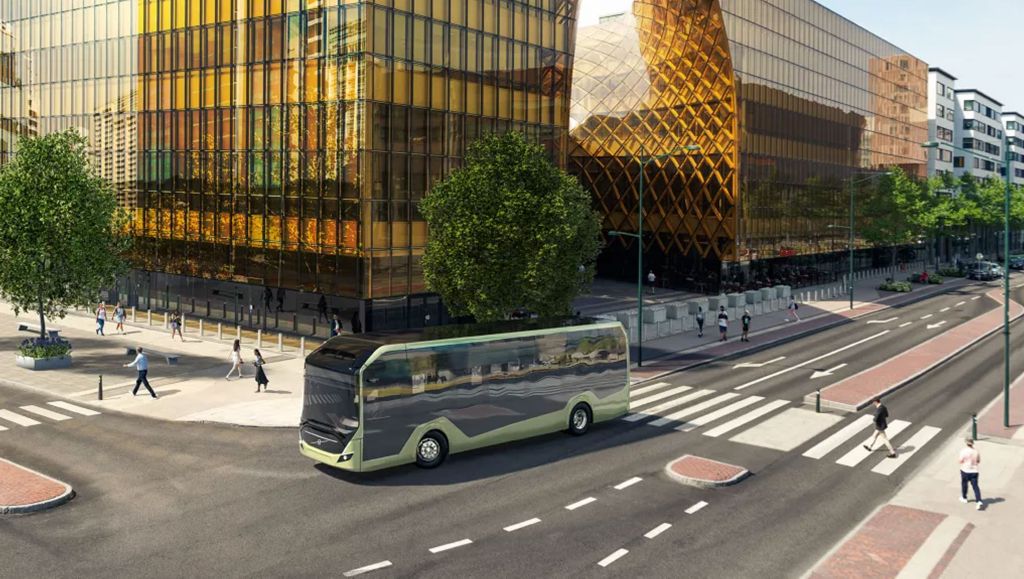Volvo Buses launches new global electromobility offer


“We are committed to leading the transformation of our industry towards a more sustainable future. With the launch of the new Volvo BZL Electric, our ambition is to offer the world’s most responsible electric bus systems. We do it by focusing on sustainability, safety and reliability,” says Anna Westerberg, President of Volvo Buses.
The global demand for electromobility solutions in the public transport sector is rising and Volvo Buses expects a rapid increase in the coming years.
“With the new Volvo BZL Electric we offer a global platform for clean, silent, and energy-efficient public transport to meet the rising demand on important markets that are ready for the shift to electromobility,” says Anna Westerberg.
Circularity is important
Environmental care is at the heart of Volvo and sustainability, less noise, lower emissions, and reduced CO2 is essential. Volvo Buses has a wider scope than just that.
“We have a lifecycle perspective and take responsibility for the environmental impact of our products, from the cradle to the grave. This means we ensure that materials, manufacturing, operation and recycling meet the highest environmental standards,” says Anna Westerberg.
At Volvo Buses, circularity is important, and the new Volvo BZL Electric has been developed to be over 90 percent recyclable.
Volvo reliability, efficiency and safety
Volvo Buses has years of experience of electromobility solutions from working closely together with operators all over the world. The new Volvo BZL Electric is designed for both single and double decker applications with multiple options for bodybuilders.
“The new Volvo BZL Electric is based on proven and successful technologies already implemented in Europe. All the chassis and driveline components have been developed and manufactured by Volvo. To safeguard the premium qualities of our buses we partner up with selected bodybuilders around the world,” says Dan Pettersson, Head of International at Volvo Buses.
An electric bus is always part of a system. Route length, frequency, capacity, charging and local regulations all translate into different solutions.
“Through experience, we know that we need to work closely together with our customers and partners to be able to tailor electromobility solutions to each individual city. And through our worldwide service network and dedicated service teams, we can ensure the reliability and efficiency of our products and services even in the long-term perspective. It’s all about delivering zero unplanned downtime,” says Dan Pettersson.
Safety is a guiding star at Volvo, and the new Volvo BZL Electric meets the highest European standards for superior drivability and safe operation. It includes Volvo Buses’ latest connected technology offer, Volvo Connect. With features such as Volvo’s Zone Management, the operator can create safety zones where the maximum speed is limited, for example outside a school or in a bus depot.
A first-class driving experience and charging flexibility
The Volvo BZL Electric features a driveline developed entirely by Volvo. The 200 kW electric motor is coupled to a two-stage automated gearbox. This increases wheel torque at low speed and evens out current peaks, thus reducing energy consumption and sustaining motor and battery health. The driveline can be configured as a single or dual motor unit with a power output of no less than 540 hp. This makes the Volvo BZL Electric an untiring hill climber and allows for swift and smooth operation.
The Volvo BZL Electric is designed for charging flexibility using hardware interfaces for both OppCharge high-power charging on route as well as CCS charging in the depot. Volvo Buses also offers a usable energy commitment, which means that Volvo Buses guarantees capacity for an agreed amount of energy for the operation – thus eliminating any customer worries about batteries.
Facts Volvo BZL Electric
Length (mm): 11,815 (single decker), 10,585 (double decker).
Driveline: Electric motor, max output one/two motors: 200/400 kW (single decker), 200 kW (double decker).
Gearbox: 2-speed automated manual transmission.
Charging: OppCharge, max charge power: 300 kW. Combo2/CCS, max charge power 150 kW.
Energy storage capacity: Up to 470 kWh
Gothenburg
27 September 2021
Pictures, film and data sheet can be downloaded here: https://www.volvobuses.com/en/news-stories/press.html.
The launch film can be seen here: https://www.volvobuses.com/en/news-stories/events/electrifying-world-premiere-2021.html.
For more information, contact: Joakim Kenndal, Head of Media Relations, Volvo Bus Corporation, phone: +46 739 02 51 50 or email: joakim.kenndal@volvo.com.